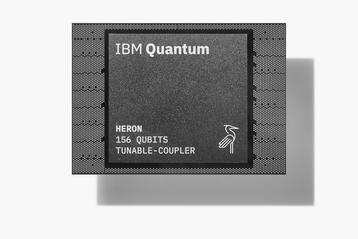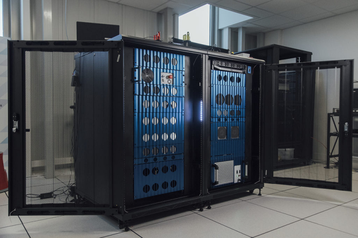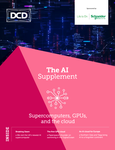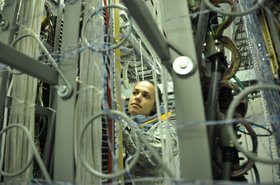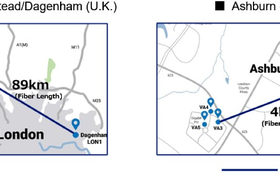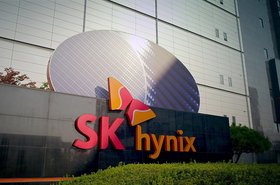IBM has deployed more quantum computers at its quantum data center in New York.
This week has also seen IonQ sign a large deal with the United States Air Force.
In Europe, the EuroHPC JU has signed deals to procure two quantum systems from European firms. And US startup Atom has secured investment from a Danish pension fund.
IBM adds more quantum systems to New York campus
IBM has deployed more quantum computers at its campus in New York.
The company this week announced the completion of its latest expansion of the IBM Quantum Data Center in Poughkeepsie, New York, with the installation of a second IBM Heron processor-based system.
"Since IBM made the first quantum computer available on the cloud in 2016, we have broken barriers across quantum hardware and software to build our largest and highest-performing fleet of globally accessible quantum systems," said Jay Gambetta, VP at IBM Quantum.
"Our quantum data center in Poughkeepsie is the epicenter of these efforts, with more organizations around the world using our systems here in the Hudson Valley to explore industry-relevant problems on real quantum hardware. As we continue to expand our quantum computers in Poughkeepsie and globally, we will work with our network of more than 250 organizations to accelerate the pace of discovery in quantum computing."
IBM said the Poughkeepsie sites operates the highest number of utility-scale quantum computers at a single location in the world. Introduced late last year, IBM’s Heron quantum processors offer 156 qubits.
IonQ secures $$54.5 million contract with US Air Force
IonQ has secured a $54.5million contract with US Air Force to deliver two quantum computers.
The vendor has agreed a four-year-contract with the United States Air Force Research Lab (AFRL).
It will see the company design, develop, and deliver technology and hardware that enables the scaling, networking, and deployment of quantum systems. The project will help advance quantum networking compatibility with existing telecommunications infrastructure, interoperability with different quantum systems and devices, and deployability of systems suitable for various environments.
Last year the company announced a $25.5m deal with the AFRL to deploy two barium-based trapped ion quantum computing systems for quantum networking research and application development at AFRL’s location in Rome, New York. This followed a $13m deal the year before.
"Working with industry partners, we can significantly advance the Department of Air Force's efforts to integrate quantum networks into future operations, bolstering our national defense,” said Michael Hayduk, deputy director of the Air Force Research Laboratory's Information Directorate.
EuroHPC JU awards two quantum contracts
The European High-Performance Computing Joint Undertaking (EuroHPC JU) has signed deals to procure quantum computers; one with IQM to deliver a quantum system to Czechia, and another with Quandela and Attocube to deliver one to France.
IQM Quantum Computers (IQM) has won a contract to build the Czech Republic’s first quantum computer, which will be installed at the IT4Innovations National Supercomputing Centre in Ostrava.
The contract is part of the EuroHPC JU program. It will be connected to the EuroHPC petascale supercomputer Karolina and offer 24 qubits. Installation will start in 2025.
IQM Co-CEO, Mikko Välimäki said: “Winning the first quantum computer delivery in the Czech Republic is a significant milestone for IQM and the entire Central European quantum community. We are extremely excited as this is the first customer system based on our next-generation star topology QPU, which is set to shortcut the path to quantum error correction. We are looking forward to working with the IT4Innovations National Supercomputing Centre to push the boundaries of quantum computers further.”
The system will be based on superconducting qubits in a star-shaped topology, which minimizes the number of so-called swap operations, enabling the execution of highly complex quantum algorithms.
Branislav Jansík, supercomputing services director at IT4Innovations, added: "We are excited to have a quantum computer with the new unique QPU topology. This architecture will significantly improve the efficiency of computations and the scalability of our system. The star topology offers optimal connections between qubits, minimizing error rates and increasing the reliability of quantum operations. Thanks to this topology, we can better utilize quantum entanglement and achieve faster and more accurate results in a wide range of applications, from artificial intelligence to complex system simulations.”
In France, a consortium led by Quandela and Attocube has been selected to deliver a quantum computer that will connect with the upcoming Alice Recoque supercomputer.
Lucy will be a digital, MOSAIQ-12 photonic quantum computer, offering 12 physical qubits. installation of the system will start in 2025.
The total cost of the system is around €8.5 million ($9.51m) and it will be co-funded by the EuroHPC JU and France, both of which will contribute half the funds.
Founded in 2017, Paris-based Quandela has previously raised around €15 million ($16.8m) to develop its quantum photonics platform, which delivers quantum light photons to quantum processing units. Its systems are supercooled to up to -265 C but can reportedly slot into a standard 19” rack system. It has previously delivered systems to OVH in France and Exaion’s facility inQuebec, Canada.
As previously reported by DCD, the upcoming Alice Recoque system will couple “two experimental hybrid quantum computing partitions” with the Alice Recoque system.
Alice Recoque will be hosted by GENCI, the French national HPC agency; the quantum system will be installed at TGCC (Travaux Généraux de Construction de Casablanca), one of the three national computing centers in France operated by CEA, the French Alternative Energies and Atomic Energy Commission.
Niccolo Somaschi, CEO and co-founder of Quandela, and Peter Kraemer, CEO of Attocube systems, said: “This groundbreaking system integrates Quandela’s advanced qubit generator with Attocube’s compact cryogenic system (attoCMC), alongside proprietary photon demultiplexing technology, a sophisticated 24-mode photonic chip, high-precision single-photon detectors, and a comprehensive electronic and software control stack. MOSAIQ-12 represents a leap forward in quantum computing practicality, boasting a remarkably compact 2 square-meter footprint and energy-efficient operation at under 5kW.”
To date, EuroHPC JU has signed hosting agreements with six sites across Europe to host and operate EuroHPC quantum computers; other nations set to host the systems include Germany, Italy, Poland, and Spain.
Atom Computing Secures $10m from PensionDanmark
Quantum computing startup Atom Computing has secured $10 million from Danish pension firm PensionDanmark.
"Quantum computers can open up a whole new world of solutions, and with this investment, we give our members the opportunity to share in the returns from this potential paradigm shift to the benefit of their pension savings," said Peter Stensgaard Mørch, CEO of PensionDanmark.
PensionDanmark was founded and is owned by a number of trade unions and employers' associations; it is Denmark's largest labor market pension fund.
Founded in 2018, Atom is developing an atomic array-based quantum computer, and is one of the first companies to develop a 100-qubit prototype of that approach.
The Export and Investment Fund of Denmark (EIFO) recently announced an investment of 70 million DKK ($10.21 million) in Atom, with the California-based firm set to locate its European HQ in Denmark.
Microsoft recently said it aims to develop "the world's most powerful supercomputer" in partnership with Atom.
The company previously told DCD it has two additional systems in development at its facility in Boulder, Colorado. In the near term, the company is soon set to offer access to its system via a cloud portal, followed by the public cloud, and finally offering systems on-premise. NREL is an early customer.
Rather than the golden chandeliers and dilution fridges that require supercooling, Atom’s system uses optical tables and lasers for its quantum mechanics. Atom’s current system sits on a 5ft by 12ft optical table; Hays told us his company’s current systems require a ‘few tens of kilowatts’ for the whole system, including the accompanying classical compute infrastructure – equivalent to a few racks.

